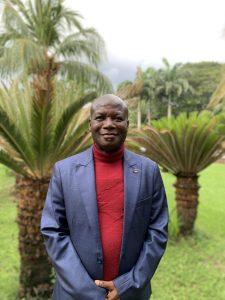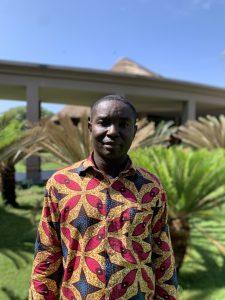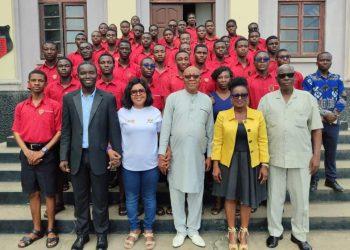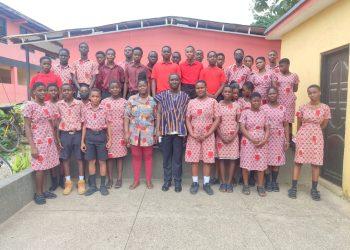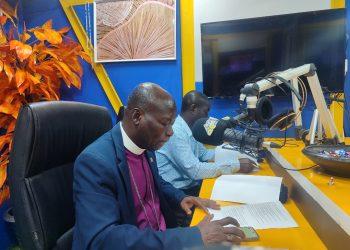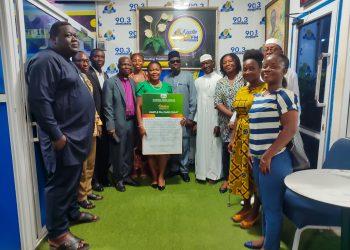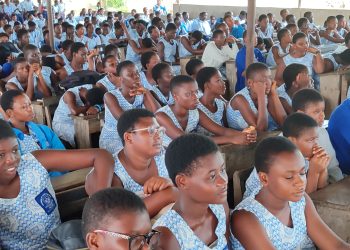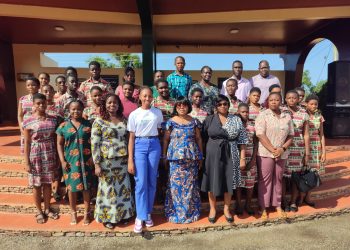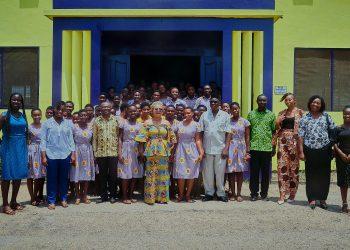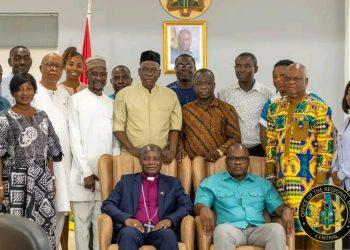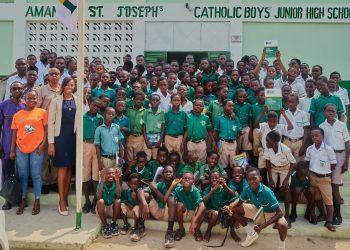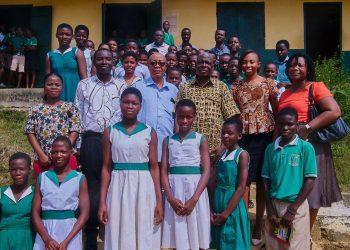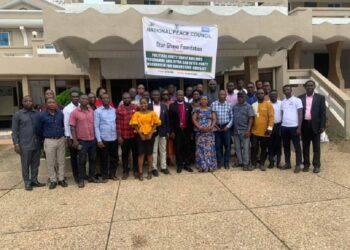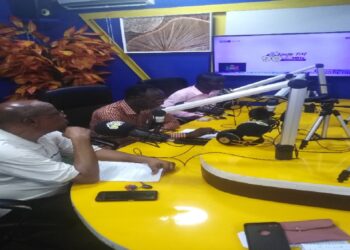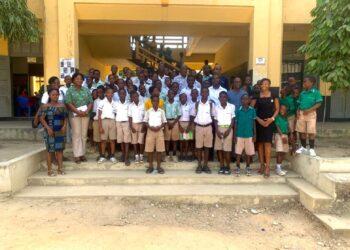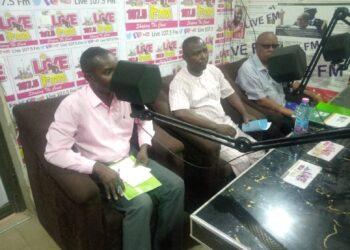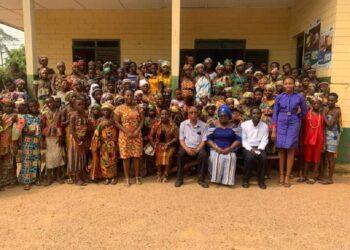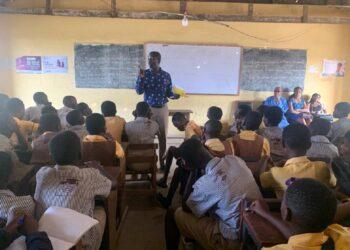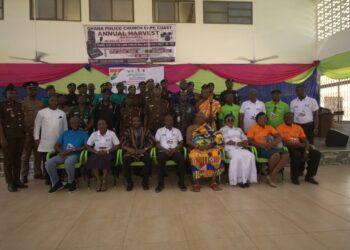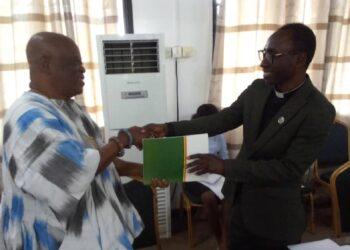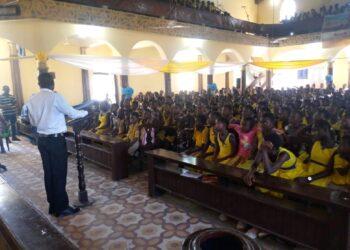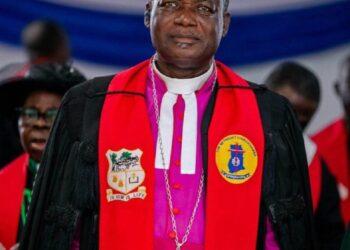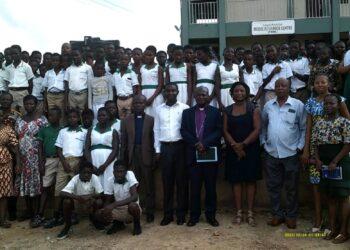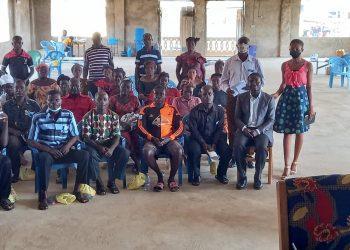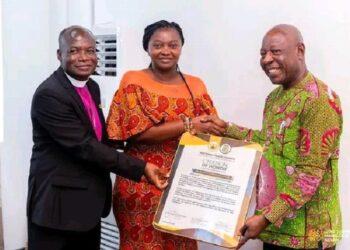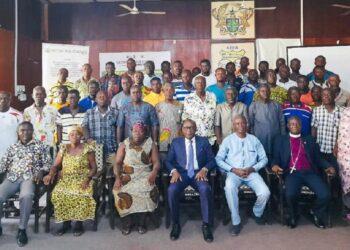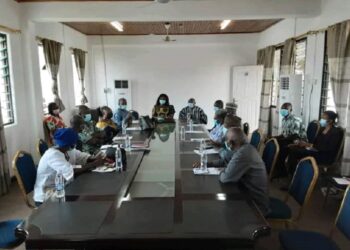Central Regional Peace Council
The Central Region has 22 Metropolitan, Municipal, and District Assemblies (MMDAs) and 23 electoral constituencies. It was historically part of the Western Region until 1970 when it was carved out as a separate regional entity just before the 1970 Population Census. Until 1877, Cape Coast, the capital of the region was the seat of the British colonial authority.
The coastal city is known for its ancient forts and castles erected by early European traders, three of which have been designated as World Heritage Monuments by the World Heritage Foundation under UNESCO, at Elmina, St. Jago, and Cape Coast.
The region is also known for its palm-fringed beaches, fascinating fishing villages and medieval towns, as well as a diverse range of natural features. The foremost wildlife reserve in Southern Ghana, Kakum National Park, is located 30 kilometers north of Cape Coast and is well worth a visit. Kakum is the most accessible, as it is extremely easy to visit from Accra, and it features almost unspoiled virgin rainforest protected as a habitat for birds, butterflies, and uncommon local wildlife.
The culture of the region is reflected in the many spectacular events held throughout the year. ‘Bakatue,’ or the opening up of Benya Lagoon into the sea, symbolised the start of the fishing season for the people of Elmina; ‘Edina Buronya,’ a native version of Christmas celebrated by the people of Elmina on the first Thursday of the New Year; ‘Aboakyir,’ or deer hunting, one of the most famous festivals celebrated by the chiefs and people of Winneba on the first Saturday in May; and On the last Saturday in August, other well-known celebrations are ‘Odwira’ festival by the people of Dunkwa-on-Offin and ‘Odambea.’ Odambea is celebrated on the last Saturday in August in Saltpond Traditional Area, and it reflect the migration of the local people centuries ago.
CENTRAL REGIONAL PEACE COUNCIL (CRPC)
The CRPC has two offices in the region; the Regional and the Effutu Municipal secretariats. The regional secretariat is located at the Central Regional Coordinating Council in Cape Coast, while the Effutu Municipal Peace Council (EMPC) is located at the Old Municipal Assembly Building in Winneba. This regional body’s aim is to raise awareness surrounding the use of non-violent strategies in response to conflict through networking, coordination, and campaigning.
The Maiden Council (2014-2018)
The maiden Central Regional Peace Council was inaugurated on July 23, 2014, at the Cape Coast Hotel. Mrs. Florence Mangwe Hutchful, a member of the National Peace Council Board who performed a swearing ceremony, charged the 13 council members to see their appointment as a call to national duty that required total sacrifice and volunteerism. In an acceptance speech, Dasebre Kweku Ewusi VII, a member of the Central Regional Peace Council, on behalf of his colleagues, pledged to work hard and promote peace in the region. High-profile personalities who graced the inaugural ceremony were: Osabarima Kwesi Atta II, Omanhene of Oguaa Traditional Council; Hon. Acquinas Tawiah Quansah, the Central Regional Minister; Hon. Queenstar Sawyerr, the Deputy Central Regional Minister; and DCOP Ninson, the Central Regional Police Commander.
As part of the inauguration ceremony, a training programme was organized to equip the newly inaugurated council members for the task ahead. Mrs. Janet Sarney Kumah, Director of Capacity Development and Outreach, led the NPC Act 818 of 2011, whilst Mr. Sulley Sumani (Regional Executive Secretary) handled the Central Region Conflict Map document.
Another remarkable thing worth mentioning is the gender sensitivity of the Central Regional Peace Council Board, as there were three women among the council members, the first of its kind in the annals of the National Peace Council. They were: Nana Amba Eyiaba, Mrs. Gloria Koomson, and Mrs. Lucy Owusu Ansah.
Dr. Kenneth Shelton Aikins, a Senior Lecturer at the School for Development Studies at the University of Cape Coast, was elected as the Chairman of the first Central Regional Peace Council Board.
The Second Council (2018- 2022)
The second council was inaugurated on November 8, 2018 at the University of Cape Coast. Their tenure of office expires on November 7, 2022. This council also has 13 members, as stipulated by Act 818. The Christian representatives are: Mr. Matthew Eghan, representing the Catholic Bishops Conference, who is the Chairman of the CRPC (2018–2022). The Rt. Reverend Richardson Aboagye Andam, Methodist Bishop of Cape Coast Diocese, representing the Christian Council; Apostle Samuel Yaw Antwi, representing the Ghana Pentecostal and Charismatic Council; and Bishop Dr. John Baptist Bentil, representing the National Council for Christian and Charismatic Churches.
The Islamic representatives are: Ustaz Hassan Ahmed Tijani, representing the Tijaaniya Muslims Group; Sheikh Shafiq Abdul-Rahman, representing the Alus-Sunnah Muslims Group; and Alhajj Sulaiman Adam-Sakyi, representing the Ahmadiyya Muslim Mission. Others are: Mr. Stephen Kweku Gyesi, representing practitioners of African Traditional Religion; and Dr. Emmanuel Yamoah Tenkorang, representing the identifiable group. He is the Dean of the University of Cape Coast’s Department of Peace Studies. The rest are: Prof. Samuel Ato Duncan of the Global Peace Mission; the Center of Awareness; and Osabarimba Kwesi Atta II (Omanhene of Ogua), representing the Regional House of Chiefs. There are two government appointees. They are Mrs. Angelina Sam-Amoah and Mrs. Vivian Adu-Poku, representing the Central Regional Coordinating Council. Mr. Charles Ohene-Amoh is the Executive secretary of the Central Regional Peace Council.
Activities of CRPC
Inquest to foster sustainable peace in the region, the Central Regional Peace Council undertake the following;
- CRPC harmonize and coordinate conflict prevention, management, and resolution; and, through regional networking and coordination, promote long-term peace. The council also strengthen capacities for conflict prevention, management, resolution and sustainable peace in the country including but not limited to chiefs, women, youth groups and community organization. For instance, CRPC organizes several advocacy engagement on conflict prevention and peacebuilding in selected communities in the region.
- CRPC raises the knowledge about the use of nonviolent conflict prevention, management, and resolution tactics in order to achieve long-term peace in the region.
- The council has facilitated amicable conflict resolution through mediation and other methods, including indigenous conflict resolution and peacebuilding techniques in several conflicts in the region.
- CRPC also promote understanding of the values of diversity, trust, tolerance, confidence building, negotiation, mediation, dialogue and reconciliation. This is done through: Float through major thoroughfares to campaign for tolerance, T-shirt printing with information about peace, peace football match Radio discussion and Symposium on peace.
Regional Executive Secretary
Mr. Charles Ohene-Amoh, graduated with honours from Kwame Nkrumah University of Science and Technology with a dual Bachelor of Arts degree in Law and Sociology. He also holds M.A and MPhil in Human Rights from the University of Education, Winneba (UEW). He also graduated with M.A degree in Peace and Development Studies from the University of Cape Coast (UCC) and a graduate certificate in Pastoral Theology from Logos International School Of Ministry (LISOM).
Between 2013 and 2020, he was the District Executive Secretary of the Effutu Municipal Peace Council, Winneba. Charles has several professional development education in Peace and Conflict studies from short courses and workshops organized by the Kofi Annan International Peacekeeping Training Centre (KAIPTC), Accra, United Nations Institute for Training and Research (UNITAR) and United States Institute for Peace (USIP).
Supporting Team

YABOM MWINKOM BARBARA
(PROGRAMME MANAGER)
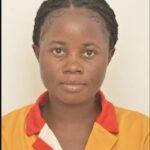
MAVIS APPIAH
(ASSISTANT ADMIN MANAGER)

